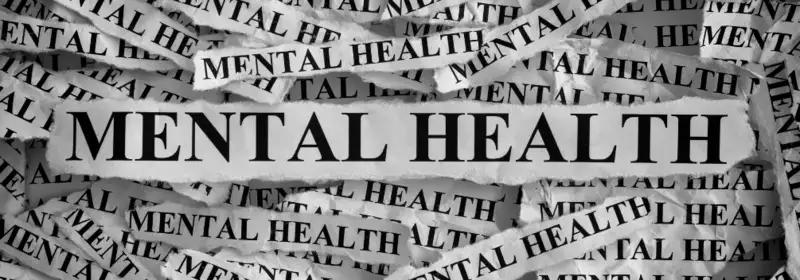With the increasing prominence of mental health and related issues, psychology has never been more important to the national discussion. Many people suffer from depression, anxiety, substance abuse, phobias and other mental health issues.
Through Psychology, we can examine the human mind in terms of mental behaviours and psychological functions. Psychologists will then try to understand how it functions, responds, if it can be improved and how it can be kept in a stable state.
They will do this by observing, interpreting and recording how people relate to each other and the environment. Conducting scientific studies to monitor behaviour and brain function, collecting information through interviews, surveys and tests, identifying patterns that predict behaviour and recognising and diagnosing mental, behavioural, or emotional disorders.
From these findings, they can increase awareness among individuals and groups. Working with schools and workplaces to develop programmes that address psychological issues. Also, helping individuals, families and couples make desired changes to their behaviour.
Studying the mind to describe, explain, predict and change human behaviour for the better, is intense. You can delve into the deepest parts of a person and experience their pain, anguish or troubles. Which at times can be confronting and hard to digest. Though, helping someone turn their life and overall well-being around is ultimately a rewarding and joyous experience.
If people’s thoughts, emotions, feelings and behaviour intrigue you, studying GCSE Psychology could be the starting point to a fascinating career.

What the Course Involves
This GCSE online course provides an engaging and comprehensive introduction to Psychology. It will introduce you to the fundamental concepts of the subject, developing your critical analysis, independent thinking and research skills.
As Psychology is a broad discipline, you will cover many areas including cognitive development, clinical and social behaviour. This can be further broken down into learning about memory, perception, communication and social influence. You will also explore neuropsychology, psychological problems and the impact on the human mind.
Through studying these varied and interesting topics, you gain an understanding of psychological ideas, processes and theories. Using your judgement to evaluate these and draw conclusions based on learned skills.
Upon successful completion of each module, there will be two paper exams at the end of the course:
Paper 1: Cognition and behaviour
Paper 2: Social context and behaviour
In these, you will be expected to draw on knowledge and understanding of the entire course of study to show a deeper understanding of these topics. Each paper will include multiple-choice, short answer and extended writing/essays.
After gaining your GCSE you can go on to study Psychology and other Social Sciences at A Level and beyond.

The Modules
The course focuses on both the study of cognition and behaviour and the social context of behaviour. To greater understand the acquired, internal and external factors that affect and influence the way people act and behave.
Cognition and behaviour
Memory – The different types and processes of memory such as the encoding (input), storage and retrieval (output). The structures of memory and memory as an active process.
Perception - Sensation and perception, visual cues and constancies, Gibson's direct theory of perception (the influence of nature), visual illusions, Gregory's constructivist theory of perception (the influence of nurture) and factors affecting perception.
Development - Early brain development, Piaget’s stage theory and the development of intelligence, the role of Piaget’s theory in education, the effects of learning on development.
Research methods - Formulation of testable hypotheses, types of variable, sampling methods, designing research, correlation, research procedures, planning and conducting research and ethical considerations.
Social context and behaviour
Social influence – Conformity, obedience, prosocial behaviour and crowd and collective behaviour.
Language, thought and communication - The possible relationship between language and thought, the effect of language and thought on our view of the world, differences between human and animal communication, non-verbal communication and explanations of non-verbal behaviour.
Brain and neuropsychology - Structure and function of the nervous system, neuron structure and function, structure and function of the brain and an introduction to neuropsychology.
Psychological problems - An introduction to mental health, how the incidence of significant mental health problems changes over time, effects of significant mental health problems on individuals and society, characteristics of clinical depression, theories of depression, interventions or therapies for depression, characteristics of addiction, theories of addiction and interventions or therapies for addiction.

What You’ll Learn
This online course is designed to help you develop a host of desirable and transferrable skills to take into your life and career.
You will acquire knowledge and understanding of Psychology, helping you to develop an understanding of self, others and how psychological understanding can help to explain everyday social phenomena.
You will be able to use specialist vocabulary, psychological concepts, terminology and convention to engage in the process of psychological enquiry. Understanding how psychological research is conducted, including the role of scientific method and data analysis.
You will confidently be able to present information, develop arguments and draw conclusions through a critical approach to evidence, developing as a reflective thinker.
Your understanding of the relationship between Psychology and personal, moral, social and cultural issues will develop, enhancing your understanding of ethical issues in Psychology.
The scientific aspects of the course such as the application of a reasoned approach, problem-solving and manipulation of data, will make you desirable to healthcare, law enforcement, finance, IT and research-related careers.
Whereas your understanding of human behaviour, ability to critically analyse problems, articulate considered responses, build arguments and come up with new ideas will be very well received in industries such as law, education and government administration.

What Next?
Once you gain your GCSE Psychology, you can put this towards further education in Psychology or other social sciences. All Psychology careers start with a four-year bachelor's degree. Should you aspire to become a Chartered Psychologist or register as a Practitioner Psychologist then postgraduate study and training will also be essential.
You can do postgraduate study in areas such as Clinical, Counselling, Educational, Occupational, Sport and Exercise or Forensic Psychology. The length and type of study will vary depending on the area you wish to focus on.
Others who study Psychology move into other fields where their knowledge is highly valued such as marketing, advertising or human resources. Qualifications in Psychology are beneficial for a range of careers and employers.
Jobs directly related to Psychology could be:
- Clinical Psychologist
- Counselling Psychologist
- Educational Psychologist
- Forensic Psychologist
- Further Education Teacher
- Health Psychologist
- High Intensity Therapist
- Occupational Psychologist
- Psychological Wellbeing Practitioner
- Sport and Exercise Psychologist
Others who value Psychology qualifications are:
- Advice Worker
- Border Force Officer
- Careers Adviser
- Counsellor
- Detective
- Education Consultant
- Human Resources Officer
- Life Coach
- Market Researcher
- Mediator
- Neuroscientist
- Play Therapist
- Policy Officer
- Psychotherapist
- Special Educational Needs Coordinator (SENCO)

If you are interested in the mind and would like to take this further into a fascinating career, consider studying your GCSE Psychology online.
Online courses allows you to study from home, around your work or family care schedule. This means having a full-time job or looking after your children won’t get in the way of you achieving the qualifications you need.
With the course materials accessible in our online portal, there is no need for set classes or a timetable. You can complete the work as and when it suits, potentially getting your qualification faster than the full length of course time allowed. The only date you will need to bear in mind is your exams in May/June.
So, why not take your GCSE online and learn comfortably at home, without the distraction and anxiety often associated with classroom learning.
learndirect is a leading UK online course provider. Take a look at our GCSE Psychology course in more detail on our website or download our FREE GCSE Faculty Brochure for more information below.



















